Time is Ticking
How Mathspace is Supporting Adoption of the Revised VA Math SOLs
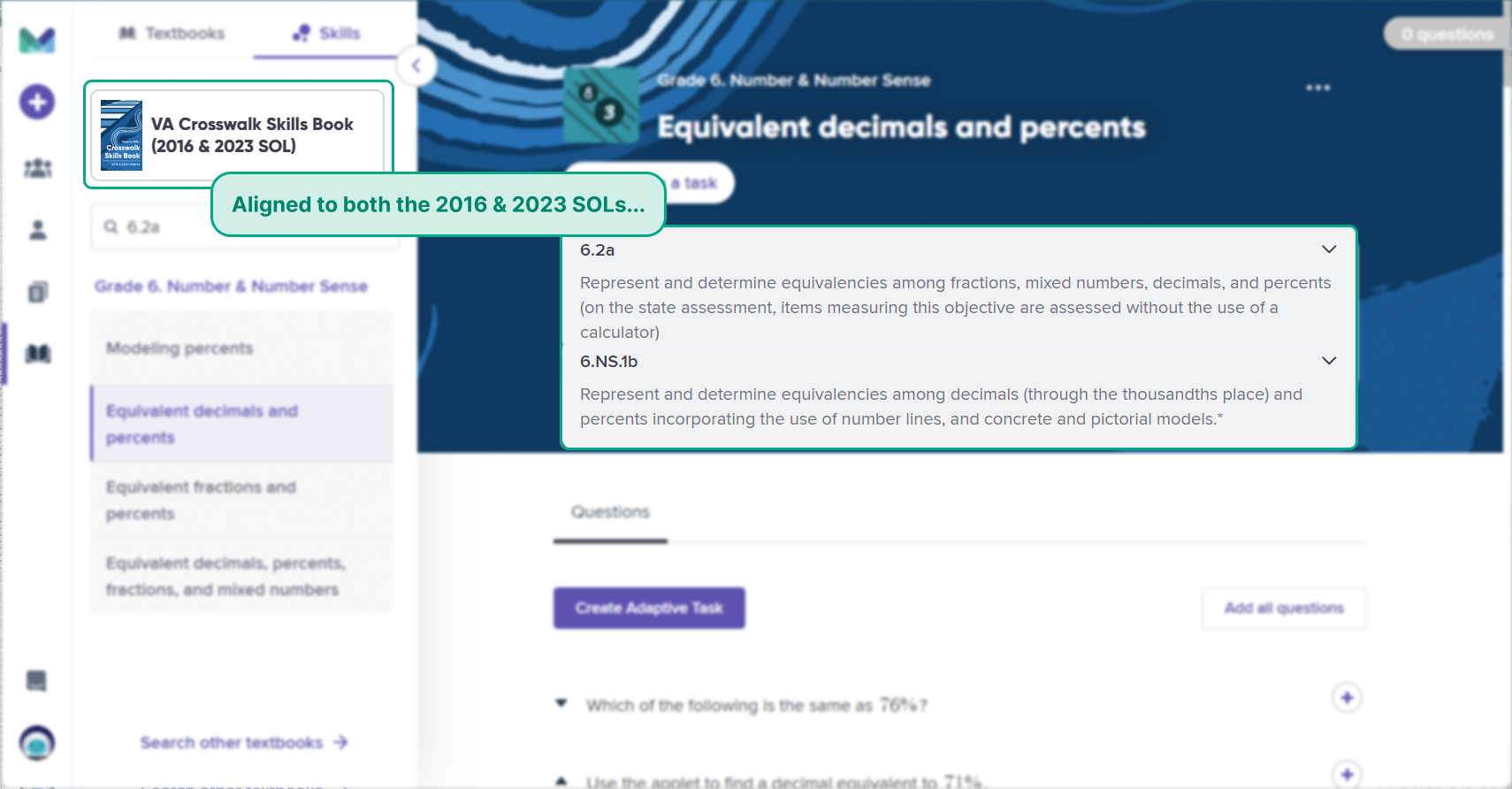
How Mathspace is supporting adoption of the revised VA math SOLs
On September 29, 2023, I spoke with and presented to a group of about 200 Virginian math leaders at the Virginia Council for Mathematics Supervision (VCMS) Fall Meeting in Richmond.
One major topic was on everyone's mind: The recently approved 2023 Mathematics Standards of Learning (SOLs), with a few key questions:
- What is in them?
- How and when will we implement them?
- Will there be any resources available to support the implementation?
It was my privilege to share Mathspace's vision for supporting the Virginia Math Community going into the adoption of the new standards. I was also grateful to learn from the educators at the event.
The message resonated, so I wanted to share it more widely with those unable to attend.
You can watch a recording of the presentation below or keep reading to get a summary of the key points. Mathspace's Support of the VA Math Community:
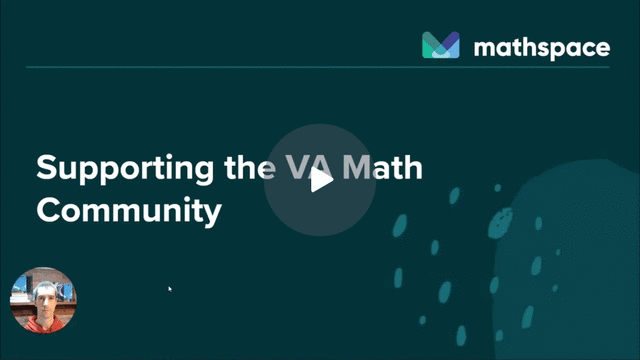
The anxiety about timelines
One of the biggest things I heard repeatedly was that people were concerned about the short timeline for a full implementation of the standards.
Here are some of the critical dates for school divisions:
- June 2023: Revised SOL draft released by the Virginia Department of Education (VDOE)
- August 2023: 2023 SOLs formally approved with some edits from the June draft
- August 2023: School divisions choose how to proceed for the 2023-2024 school year
- Option 1: A full Crosswalk Year: Divisions teach both the 2016 and the 2023 SOLs in their classes
- Option 2: A partial Crosswalk Year: Divisions focus primarily on the 2016 SOLs, sprinkling in some key pieces to the 2023 SOLs as well
- Option 3: No Crosswalk: Division teaching and learning is targeted exclusively on the 2016 SOLs
- March 2024: The final approved list of core resources is released by the VDOE, allowing divisions to begin their own formal review process for resource adoption.
- August 2024: All divisions fully implement the 2023 SOLs during the 2024-2025 school year.
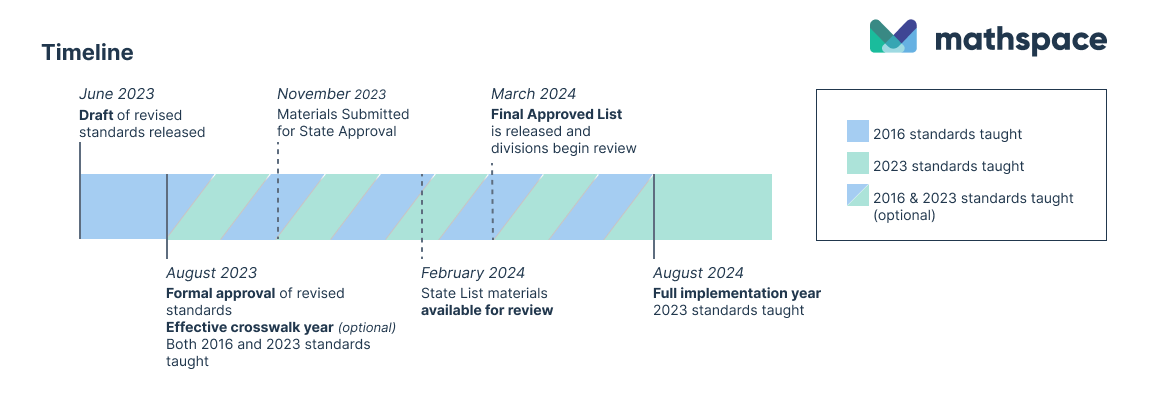
There were two main worries with the timeline that Mathspace has tried to address:
- Immediate: With the release of the SOLs coinciding with the start of the 2023-2024 school year, is there enough time to even partially implement the standards this year? And regardless, will any resources be available to support the implementation this year?
- Medium Term: March 2024 to August 2024 leaves little time to review, purchase, and order resources before the school year. How can we ensure we get the best possible materials for our teachers and students?
While every division has tough decisions ahead, I wanted to ensure that Mathspace was there to support them, regardless of their direction.
Why Mathspace?
I'm a former high school math teacher who used Mathspace with my students, and what I loved then is still unique in the industry today.
Mathspace's StepSmart technology allows students to show every step of their work as they solve problems, offering immediate feedback and tailored support based on the student's approach. Mathspace also provides built-in lessons and videos for extra instructional support.
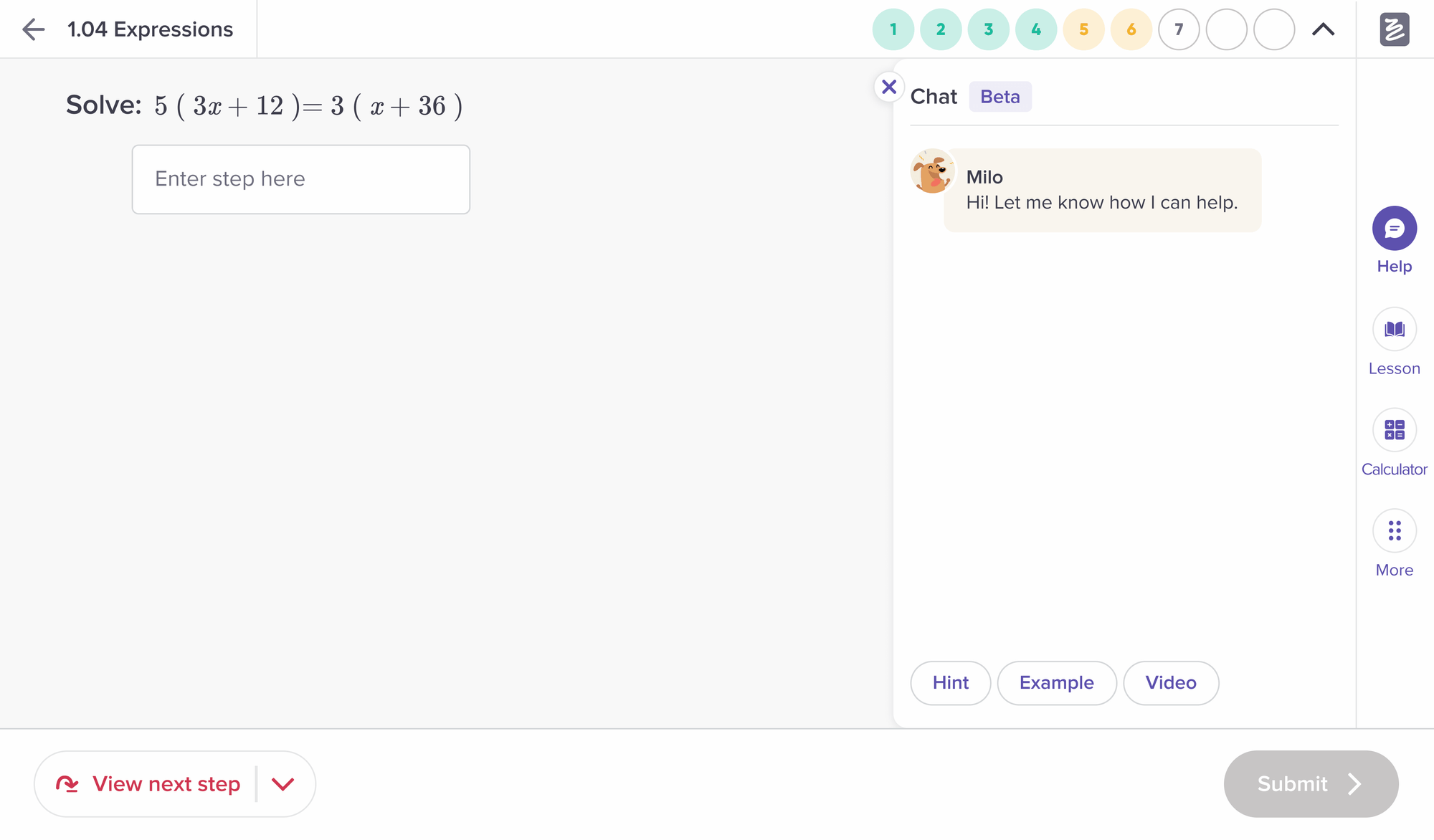
About six years ago, I first used Mathspace, and while the StepSmart is still fantastic, there's now so much more that we have to offer divisions in Virginia.
Right Now: The Mathspace Crosswalk Skills Book
Recognizing the immediate needs of educators, Mathspace has released a digital-only Crosswalk Skills Book for FREE to all school divisions in Virginia.
The Skills Book is a searchable collection of hundreds of StepSmart-powered practice problems aligned to both the 2016 and the 2023 SOLs.
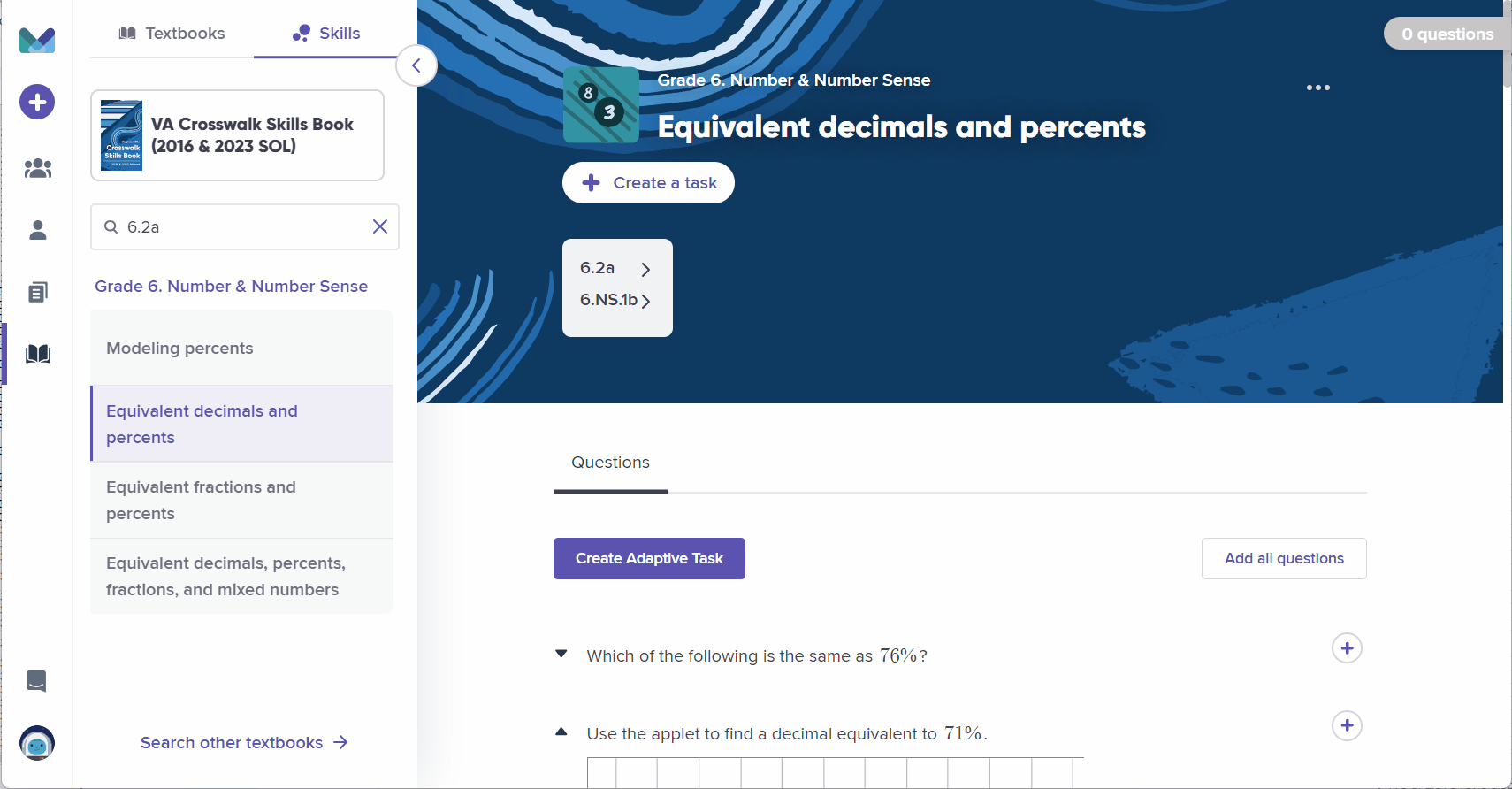
Even if your division is not doing a Crosswalk Year, the Skills Book is an excellent way for educators to familiarize themselves with part of the Mathspace platform well before the official review process begins in March. It includes part of Mathspace's Core offering, and it can introduce teachers and students to the interface, the quality of problems, and the user experience, leaving fewer unanswered questions when the state list is released.
For Full Implementation: A Complete Core Resource
Mathspace will submit resources to the VDOE to be considered for the state list for 6th through 8th grade, as well as Algebra 1, Geometry, and Algebra 2.
For us, a core resource must be more than just a textbook. Our core resource will include:
- Student and Teacher textbooks (with both print and digital options)
- Assessment and reporting tools
- Remediation and intervention supports
- Rich, collaborative tasks
For me, a few highlights of our core resource are
- Guided Notes for Students: Closely aligned with our student lessons, these are designed to assist students in note-taking, emphasizing success criteria and key vocabulary - take a look at a sample here.
- Rich Tasks: Created in easy-to-edit, customizable slides, these are accompanied by all kinds of support for teachers. We know that rich tasks are unfamiliar to many teachers so we have included as much as possible to make their implementation as painless as possible.
- Foundational Knowledge and Future Connections: It can be easy to lose track of the bigger picture when teaching lesson by lesson, so we wanted to consistently remind teachers where we've come from and are going. In addition to noting the related standards, teachers have access to materials to help support any unfinished learning from prior grades, making intervention so much easier.
- Support for Special Populations: Mathspace offers resources for English language learners, students with disabilities, and targeted instructional strategies as part of our teacher materials to ensure that ALL students can succeed.
Regardless of where you and your division are concerning the new standards, Mathspace is here to help, so sign up for the Skills Book or schedule a time to talk to our team.

